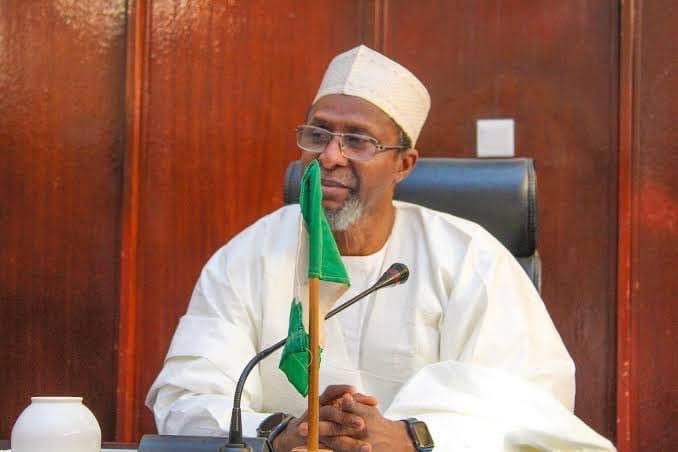Federal Ministry of Environment has boasted about promoting renewable energy generation in Nigeria, installing 30 solar-powered boreholes and 30 streetlights in the last 18 years.
The Minister of Environment Balarabe Lawal, made the announcement yesterday at a stakeholders’ engagement forum in Abuja on renewable energy investment.
The ministry developed a policy document, the Renewable Energy Master Plan, in 2006 with the support of UNDP, which outlines Nigeria’s commitment to increasing renewable energy generation and establishing a conducive environment for investment and development in the sector. The policy primarily addresses Nigeria’s need for increased electricity supply, improved grid reliability and security, and the role of renewable energy in achieving sustainable development. 18 years later, the policy has only recorded minimal progress.
“The ministry, through the implementation of its Federal Government Appropriation, has installed about 2,000 nos of Solar-powered Streetlights and over 30 nos of Solar-powered Boreholes in communities and cities across the six-geo-political zones of Nigeria,” the minister stated.
He believes that the projects reduced the use of carbon-intensive energy sources to reduce greenhouse gas emissions and introduced clean energy sources to power the water supply, enhancing lives and livelihoods, improving health, and generating employment for the off-grid Communities.
The environment ministry launched its FEC-approved National Clean Cooking Policy earlier this year. This policy tends to improve public health by reducing health risks associated with traditional cooking practices.
The aim was to enable environmental sustainability by using clean cooking technologies and solutions, reducing deforestation, GHG emissions, etc. and enhancing energy access and affordability while encouraging gender equality and empowerment for economic development.
Lawal acknowledges that achieving significant milestones in the drive to promote renewable energy generation in Nigeria requires a collective effort from all stakeholders, including the private sector, civil society, academia, and international partners.
“Esteemed partners, individual role in this transformation is paramount. The private sector has the expertise, technology, and investment capacity to drive renewable energy projects. We seek your partnership to develop innovative financing models, deploy cutting-edge technologies, and create pathways for local manufacturing and job creation in the renewable energy sector,” he told the gathering in Abuja.
The minister said the government, through his ministry, is focused on creating a favourable investment climate.
Initiatives such as the Renewable Energy Investment Framework, which birthed the Network of Financial Institutions for Clean Energy Technology and Entrepreneurship (NFI-CETE), and incentives for green investments are usually designed to attract both domestic and foreign investments into the sector.
He claimed that the government is working to streamline regulatory processes and reduce bureaucratic hurdles to ensure that projects can advance swiftly and efficiently.











